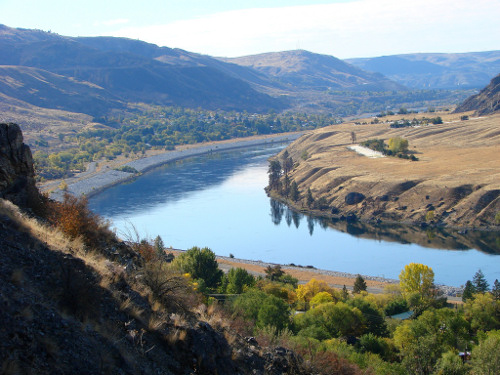SUBSCRIBE TO THE FREE NEWSLETTER
Happy Cascadia Day!
May 18, 1980 was the day Washington’s Mount St. Helens erupted (I was kid in Bremerton at the time, and I remember the face masks, incredible news coverage, and huge ash cloud on the horizon). May 18 has also become an unofficial day to celebrate the Cascadia bioregion that stretches from Cape Mendocino, California to Southeast Alaska, and east to nearly the Continental Divide.
Across Oregon, Washington, Idaho, and British Columbia, it’s a day to fly the Doug Flag and celebrate all that’s unique about the Pacific Northwest, whether it’s salmon runs in the Salish Sea, the region’s tasty wines and microbrews, old-growth forests and sagebrush deserts, and a population of 15 million diverse people, ethnicities, and cultures.
Want to learn more about Cascadia and bio-regionalism? Check out this essay at Cascadia Magazine. Get involved: CascadiaNow! is a non-profit dedicated to promoting bio-regional awareness. Cascadia Underground is a Seattle-based media center focusing on activism and education on issues of importance to the bio-region. And Sightline Institute is a fantastic organization working on sustainability across Cascadia by building strong communities, a green economy, and a healthy environment.
And of course, there’s Cascadia Magazine, which is dedicated to journalism, arts and environmental coverage, photography, essays, fiction and poetry from all corners of Cascadia. We’re a reader-supported non-profit publication and we depend on the generous financial support of people like you to publish great writing from across the Pacific Northwest. Please consider taking a moment to support our work. Thanks!
Cascadia Magazine original: When home is a parking spot
Cascadia Magazine is proud to partner with the South Seattle Emerald to publish Will Sweger’s great feature on the more than 2,000 homeless people in Seattle reduced to sleeping in their vehicles because of rising rents. It’s a marginal, dangerous existence where finding a bathroom or shower is difficult, and eviction by police a constant possibility.
Flood waters continue to rise in eastern BC & WA
CBC reports that Canadian armed forces are helping with relief efforts as eastern British Columbia faces record flooding, with more than 4,500 people evacuated and more rain and melt water arriving over the Victoria Day weekend. In eastern Washington, the Okanogan River is hitting major flood stage and is closed to recreation. The Colville Tribe has evacuated some areas, and officials in the Okanogan valley assured residents that drinking water is safe.
No one seems to like OR governor Kate Brown’s business tax cut
Calling a special legislative session next week, Oregon governor Kate Brown wants to pass a tax cut for sole proprietor businesses. Trouble is, according to OPB, not many legislators are buying into the proposal, which would give about $13 million in breaks to mostly large businesses.
Deep-pocket OR businesses hope to become Starbucks of pot
Willamette Week has the story of Chalice Farms and Nectar, two well-funded cannabis chains that threaten to take business from small dispensaries and create a huge corporate chain of legal pot stores along the lines of McDonald’s or Starbucks. Read more about the problem of racial equity in the legal weed industry at Cascadia Magazine.
The gentrification of Tacoma
The Seattle Times reports on how the traditionally African American neighborhood of Hilltop in Tacoma, Washington is seeing rising housing costs, and nearly 35 percent of black residents leaving the community in the past 10 years. Meanwhile, at Crosscut, Nikkita Oliver writes about the Northwest African American Museum and other cultural sanctuaries that anchor a sense of community in Seattle’s Central District.
How “The Blob” killed thousands of Cassin’s auklets
Hakai Magazine reports on a new study that finds some 9,000 Cassin’s auklets died on the coast of Cascadia during “The Blob,” a massive marine heat wave in 2014. Loss of food sources was the likely culprit.
Terese Mailhot on facing racism
In an essay for Pacific Standard, British Columbia author Terese Mailhot, who’s a citizen of the Seabird Island First Nation, explores a lifetime of experience with racism, ranging from overt anger to more subtle micro-aggressions she encountered in writing programs and the publishing world.
That’s all the news and arts on Cascadia Day 2018. ?? –Andrew Engelson
Photo credits: Okanogan River by Adam Jones via Flickr, CC BY-SA 2.0

